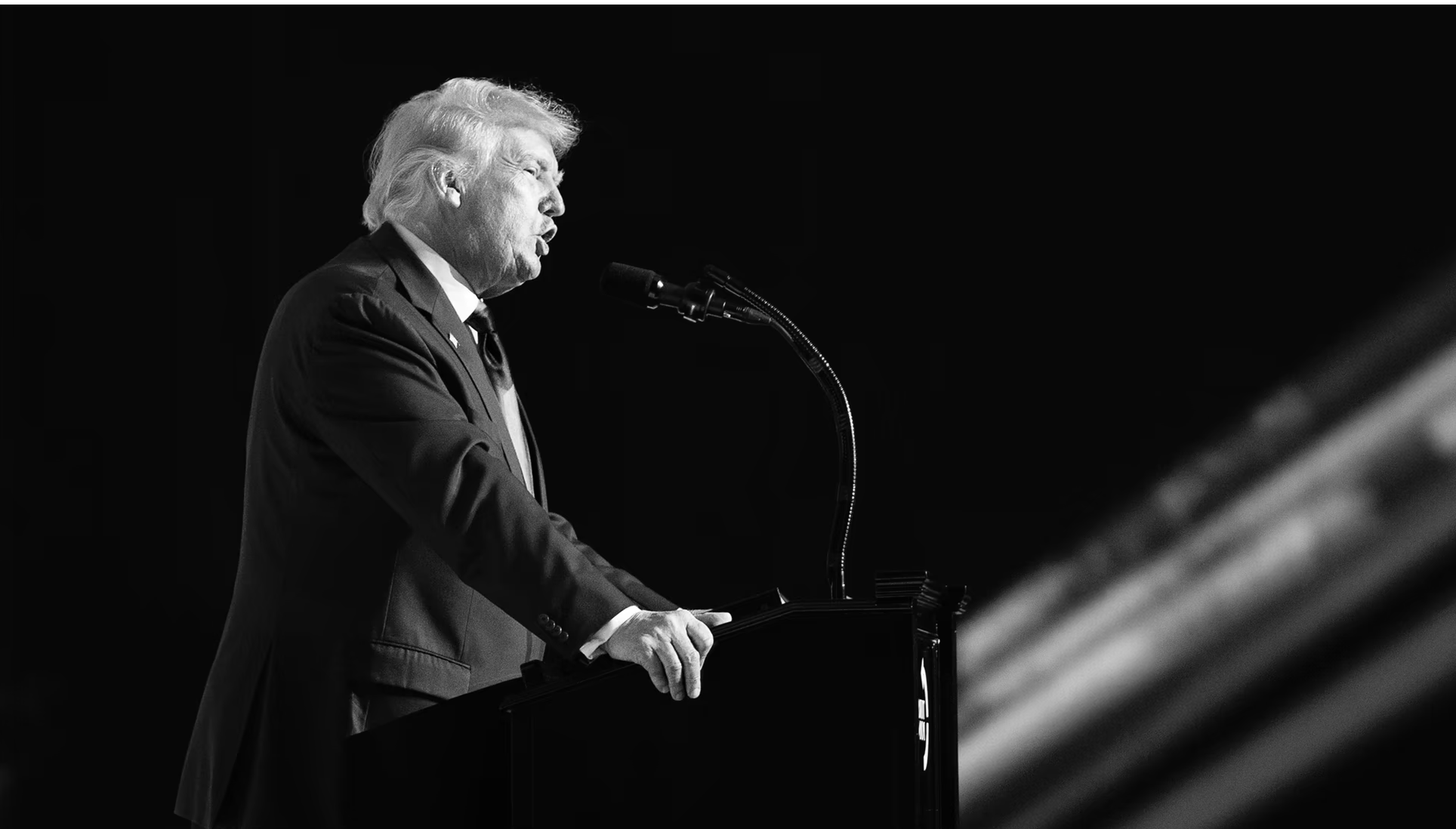
Peter Zeihan: What Would a Conflict in Taiwan Look Like?
Let’s discuss what China’s potential invasion of Taiwan would look like. Should China attack, both Biden and Trump have been explicit that the US would…
Thought Leader: Peter Zeihan

Yesterday, an ex-president who had tried to overturn a democratic election by violence returned to Washington, D.C., to call for law and order. Again and again, the speech reversed reality. The ex-president who had spread an actual big lie against the legitimacy of the 2020 election tried to appropriate the phrase big lie to use against his opponents. The ex-president who had fired an acting FBI director days before that official’s pension was due to be vested lamented that police officers might lose their pension for doing their job.
Yet scrape aside the audacity, the self-pity, and the self-aggrandizement, and there was indeed an idea in Donald Trump’s speech at a conference hosted by the America First Policy Institute: a sinister idea, but one to take seriously.
Trump sketched out a vision that a new Republican Congress could enact sweeping new emergency powers for the next Republican president. The president would be empowered to disregard state jurisdiction over criminal law. The president would be allowed to push aside a “weak, foolish, and stupid governor,” and to fire “radical and racist prosecutors”—racist here meaning “anti-white.” The president could federalize state National Guards for law-enforcement duties, stop and frisk suspects for illegal weapons, and impose death sentences on drug dealers after expedited trials.
Much of this may be hot air. All of it would require huge legal changes, and some of it would require the 6–3 conservative majority on the Supreme Court to overturn established precedents. You should listen to Trump’s speech less as an agenda of things to be done, and more as an indication of the direction of Trump’s thought.
The Trump Republican Party faces a strategic problem and a constitutional opportunity. The problem is that under Trump, the Republican Party is a minority force in American life. The opportunity is that an ever more unbalanced federal structure can enable a minority party based in many small states to control the majority population that lives in fewer big states. Abortion rights are one area where Republicans can use this opportunity, but that is not an area that especially interests Donald Trump.
Instead, and as always, the opportunity that most fascinates Trump is the opportunity to use the law as a weapon: a weapon to shield his own wrongdoing, a weapon to wield against his political opponents.
Trump’s first term was mitigated by his ignorance, indolence, and incompetence. Since the humiliation of his 2020 defeat, however, Trump has been studying how to use a second chance if he gets one. The one abiding interest of his life, revenge, will provide the impetus. Next time, he will have the wholehearted support of a White House staff selected to enable him. Next time, he will have the backing in Congress of a party remade in his own image. Next time, he’ll be acting to ensure that his opponents never again get a “next time” of their own.
He may not succeed, but he’ll know what he’s trying to do.
Peter Zeihan: What Would a Conflict in Taiwan Look Like?
Let’s discuss what China’s potential invasion of Taiwan would look like. Should China attack, both Biden and Trump have been explicit that the US would…
Thought Leader: Peter Zeihan
Dr. Sanjay Gupta: Rethinking Health Rules We Grew Up With
“Drink your milk,” we are told as children. CNN Chief Medical Correspondent Dr. Sanjay Gupta examines our practice of continuing to drinking cow’s milk as…
Thought Leader: Sanjay Gupta
Erika Ayers Badan: Turning What Fuels You Into Business
Kerri Rosenthal is an artist, a businesswoman, a mom, not someone giving up her ambition (is that what we’re supposed to be doing at work…
Thought Leader: Erika Ayers Badan

